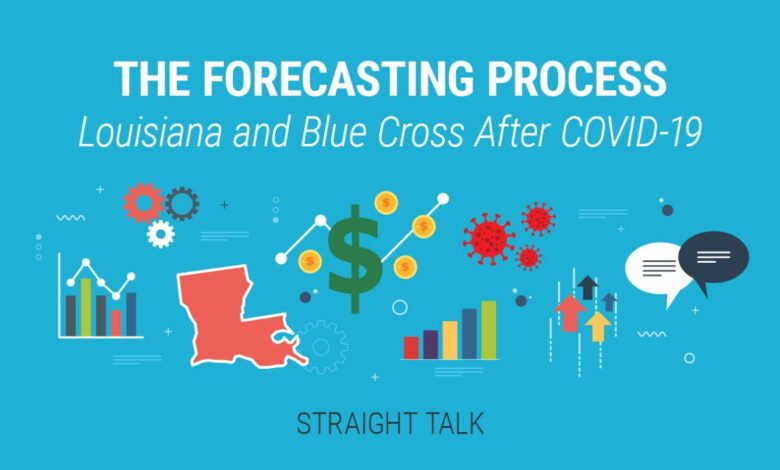
Elevance Blue Cross Blue Shield Louisiana Sale Withdrawn
Elevance Blue Cross Blue Shield Louisiana sale withdrawn – those words sent shockwaves through the Louisiana healthcare community. The unexpected cancellation of this major acquisition has left many wondering what the future holds for residents and the state’s healthcare landscape. This unexpected turn of events raises serious questions about the stability of healthcare in Louisiana and the potential implications for patients, providers, and the insurance industry itself.
Let’s dive into the details and try to understand what happened.
This post will explore the circumstances surrounding the withdrawal, examining the potential impact on Louisiana residents, and analyzing the timeline of events leading up to the decision. We’ll also look at the various stakeholders affected, including policyholders, employees, and shareholders, and discuss the potential financial and healthcare access ramifications. Finally, we’ll speculate on the future of Blue Cross Blue Shield of Louisiana and the broader implications for the state’s healthcare market.
Understanding the News
The recent withdrawal of the proposed sale of Blue Cross Blue Shield of Louisiana (BCBSLA) sent ripples through the state’s healthcare landscape. This unexpected turn of events leaves many wondering about the implications for Louisiana residents and the future of the state’s largest health insurer. Understanding the circumstances surrounding this decision requires examining the timeline of events and considering similar situations in the healthcare industry.The withdrawal wasn’t explained with complete transparency, leaving room for speculation.
However, reports suggest that the deal, initially announced with much fanfare, likely encountered significant hurdles during the due diligence phase. These challenges could have included unforeseen financial liabilities, regulatory roadblocks, or perhaps disagreements between the involved parties regarding the terms of the acquisition. The lack of clear public communication surrounding the reasons for the withdrawal only fuels the uncertainty.
Potential Impacts on Louisiana Residents
The withdrawal of the BCBSLA sale has several potential consequences for Louisiana residents. The most immediate concern is the uncertainty surrounding future healthcare costs and access. While the current leadership remains in place, the failed acquisition could lead to shifts in strategy, potentially impacting premiums, provider networks, and the overall availability of healthcare services. There’s also the potential for a delay in planned investments and improvements within the company, impacting the quality of care offered to its members.
Ultimately, the long-term effects will depend on how BCBSLA adapts to this change and what steps they take to ensure the continued stability of their operations.
Timeline of Events
While precise details remain limited due to the lack of public information from involved parties, a general timeline can be constructed based on available news reports. The initial announcement of the potential sale likely occurred several months prior to the withdrawal. This was followed by a period of due diligence where potential buyers would have conducted a thorough examination of BCBSLA’s financial records, operations, and legal compliance.
The discovery of issues during this phase likely contributed to the ultimate decision to withdraw the sale. Finally, the official announcement of the withdrawal marked the end of the acquisition process. This timeline highlights the complexities and lengthy nature of such large-scale transactions.
Comparison to Similar Instances, Elevance blue cross blue shield louisiana sale withdrawn
The withdrawal of the BCBSLA sale is not unprecedented in the healthcare industry. Numerous instances of proposed healthcare acquisitions have fallen through due to various factors, including regulatory challenges, antitrust concerns, and disagreements on valuation. For example, the failed merger between [Insert example of a failed healthcare merger, citing source] illustrates the difficulties that can arise during the acquisition process.
These past instances demonstrate the significant risks and complexities inherent in these transactions and highlight the importance of thorough due diligence and clear communication between involved parties. The unpredictability of these deals underscores the inherent vulnerabilities within the healthcare market and the significant impact that these failures can have on the broader healthcare ecosystem.
Impact on Stakeholders

Source: townnews.com
The withdrawn sale of Elevance Health’s Blue Cross Blue Shield of Louisiana (BCBSLA) has significant ramifications for a wide range of stakeholders. Understanding these impacts requires examining the potential financial consequences and alterations to healthcare access for Louisiana residents. The uncertainty surrounding the future of BCBSLA post-withdrawal creates ripple effects throughout the state’s healthcare landscape.
The key stakeholders directly affected include policyholders, employees of BCBSLA and its affiliated entities, shareholders of Elevance Health, and ultimately, the citizens of Louisiana who rely on the healthcare system.
Financial Implications for Stakeholders
The withdrawn sale introduces financial uncertainty for several stakeholder groups. For policyholders, the immediate impact is relatively minimal, as their existing coverage remains in effect. However, long-term implications depend on BCBSLA’s future strategies, which could include premium adjustments or changes to benefit packages. Elevance Health shareholders, on the other hand, experience a missed opportunity for immediate financial gain from the sale.
The potential loss of a significant asset impacts their return on investment. Employees of BCBSLA face uncertainty regarding job security and potential restructuring within the company following the failed sale. The lack of a sale could lead to cost-cutting measures, impacting employee compensation or benefits. Finally, the state of Louisiana might see indirect economic effects related to the healthcare industry’s overall stability and the potential loss of tax revenue that could have been generated from the sale.
Changes in Healthcare Access for Louisiana Residents
The withdrawn sale’s impact on healthcare access for Louisiana residents is complex and depends heavily on BCBSLA’s future actions. In the short term, access remains largely unchanged for existing policyholders. However, the long-term consequences are less clear. BCBSLA’s future strategic direction will determine whether there are any changes to the provider network, benefit offerings, or premium costs. A potential scenario could involve BCBSLA focusing on internal growth and improvements, potentially leading to enhanced services or more competitive pricing.
Conversely, a lack of investment could result in reduced services or a less robust provider network. The state’s regulatory environment and competitive landscape will also play a crucial role in shaping future healthcare access.
Stakeholder Outcome Comparison
| Stakeholder Group | Expected Outcome Before Withdrawal | Actual Outcome After Withdrawal | Potential Long-Term Effects |
|---|---|---|---|
| Policyholders | Potential for improved benefits or lower premiums under new ownership. | Continued coverage under existing BCBSLA plans. | Uncertainty regarding future premium increases or benefit reductions depending on BCBSLA’s strategic decisions. |
| BCBSLA Employees | Potential for job security and growth opportunities under new ownership. | Uncertainty regarding job security and potential restructuring within BCBSLA. | Possible layoffs or reduced benefits depending on BCBSLA’s cost-cutting measures. |
| Elevance Health Shareholders | Significant financial gain from the sale of BCBSLA. | Loss of potential financial gains from the failed sale. | Reduced return on investment; potential impact on future investment decisions. |
| Louisiana Residents | Potential for improved healthcare access and affordability depending on the buyer’s plans. | Maintenance of the current healthcare access, but with uncertainty about future changes. | Potential for changes in premium costs, benefit packages, or provider networks depending on BCBSLA’s future strategy. |
Regulatory and Legal Aspects
The withdrawal of the Elevance Health sale of Blue Cross Blue Shield of Louisiana presents a complex interplay of regulatory hurdles and potential legal ramifications. Understanding these aspects is crucial for assessing the implications for all involved parties, from the insurers themselves to the Louisiana Department of Insurance and ultimately, the policyholders. The decision to withdraw after significant progress raises questions about the underlying reasons and potential future actions.The sale required a substantial amount of regulatory approvals.
These approvals were likely sought at both the state and potentially the federal level, given the complexities of health insurance mergers and acquisitions.
Regulatory Approvals Required
Securing approval for the sale of a major health insurer like Blue Cross Blue Shield of Louisiana would have involved navigating a rigorous process. This would have included, but not been limited to, comprehensive reviews by the Louisiana Department of Insurance (LDI). The LDI would have scrutinized the financial stability of the acquiring entity, the potential impact on consumers (including premium rates and access to care), and the overall competitiveness of the Louisiana health insurance market.
Federal agencies, such as the Department of Justice (DOJ) and the Federal Trade Commission (FTC), might also have been involved, particularly if the acquisition raised antitrust concerns related to market dominance. The process would likely have involved extensive documentation, financial audits, and potentially public hearings or comment periods.
Legal Ramifications of Withdrawing the Sale
Withdrawing the sale after reaching an advanced stage carries potential legal risks for both Elevance Health and the prospective buyer. While the exact legal ramifications depend on the specifics of the initial sale agreement, there’s a possibility of breach of contract lawsuits. The withdrawing party might face claims for damages incurred by the other party due to the broken agreement.
So, the Elevance Health Blue Cross Blue Shield Louisiana sale’s been called off – a pretty big deal, right? It makes you wonder about the wider healthcare landscape, especially considering news like the retirement of AdventHealth CEO Terry Shaw, as reported here: adventhealth ceo retire terry shaw. These kinds of leadership changes can definitely impact major decisions, and maybe that played a role in the Louisiana sale being withdrawn.
It’ll be interesting to see how this affects Elevance Health’s future plans.
These damages could include legal fees, lost opportunity costs, and other expenses incurred in preparation for the sale’s completion. Depending on the wording of the agreement, there might be penalties or liquidated damages specified for a withdrawal of this nature.
Hypothetical Legal Challenges Following Withdrawal
Let’s imagine a scenario where the buyer, after significant investment in due diligence and legal preparations, claims that Elevance Health withdrew the sale in bad faith, violating an implicit or explicit clause regarding fair dealing. The buyer might argue that Elevance Health had knowledge of issues that would impact the sale’s feasibility but withheld this information until after the buyer had committed substantial resources.
This could lead to a lawsuit alleging breach of contract, fraudulent misrepresentation, or even tortious interference. The outcome would depend on the specifics of the agreement, the evidence presented, and the interpretation of the relevant laws by the court.
Potential Legal Precedents
Several legal precedents could be relevant to a case arising from this situation. The specifics would depend on the jurisdiction and the exact nature of the claims, but examples include:
- Cases involving breaches of merger and acquisition agreements, focusing on the definition of “material adverse effect” clauses and the burden of proof required to demonstrate a breach.
- Cases involving claims of fraudulent misrepresentation or negligent misrepresentation in the context of corporate transactions, where the seller withheld or misrepresented material information.
- Antitrust precedents that could be relevant if the withdrawal was related to concerns about market dominance or anti-competitive behavior, although this is less likely given the withdrawal rather than blocking by regulators.
- Cases addressing the enforceability of liquidated damages clauses in merger agreements, especially if a dispute arises regarding the calculation of damages.
Future of Blue Cross Blue Shield of Louisiana
The withdrawn sale of Blue Cross Blue Shield of Louisiana (BCBSLA) presents a pivotal moment, forcing a reassessment of the company’s trajectory and its impact on Louisiana’s healthcare landscape. While the immediate uncertainty surrounding the sale is gone, the underlying issues that led to its failure—potential financial vulnerabilities, regulatory scrutiny, and market dynamics—remain. BCBSLA now faces a period of strategic recalibration to ensure its long-term viability and competitiveness.The future direction of BCBSLA will likely involve a renewed focus on core competencies and a more aggressive pursuit of operational efficiencies.
The company may explore partnerships and collaborations to expand its reach and improve its service offerings. This could involve alliances with other healthcare providers, technology companies, or even other insurance providers, to create a more robust and integrated healthcare delivery system. The experience of this failed sale will likely lead to a more cautious and strategic approach to future expansion or acquisitions.
Strategic Adjustments for BCBSLA
BCBSLA will likely undertake several strategic adjustments in response to the withdrawn sale. These could include a reassessment of its pricing strategies to better compete in the market, a more targeted marketing campaign focused on specific demographics and needs, and a greater emphasis on preventative care and wellness programs to manage costs and improve health outcomes for its members.
Investment in advanced technology, such as telehealth platforms and data analytics tools, will be crucial for enhancing operational efficiency and improving customer service. Additionally, the company might streamline its administrative processes to reduce overhead costs and improve efficiency. For example, BCBSLA could invest in automation to reduce manual processes, improve claims processing times, and enhance customer service.
Similar to how UnitedHealthcare has streamlined its operations using technology, BCBSLA could leverage technology to improve its efficiency and competitiveness.
Reshaping the Louisiana Healthcare Landscape
The withdrawn sale has significant implications for the Louisiana healthcare landscape. The lack of a large-scale acquisition means the existing competitive dynamics will largely remain, albeit with a BCBSLA that is likely to be more cautious and focused on its core market. This could lead to increased competition among existing providers, potentially resulting in more affordable premiums and improved benefits for consumers.
However, the lack of a major influx of capital from a potential buyer could also hinder innovation and investment in new healthcare technologies and infrastructure within the state. The focus will likely shift towards internal growth and strategic partnerships rather than large-scale mergers or acquisitions. This could mean a slower pace of change in the Louisiana healthcare market compared to a scenario where the sale had gone through.
Implications for Competition in the Louisiana Healthcare Market
The failure of the sale leaves the Louisiana healthcare market largely unchanged in terms of major players. However, it alters the competitive landscape by creating a more focused and potentially more aggressive BCBSLA. Existing competitors, such as Humana and Aetna, will likely see this as an opportunity to strengthen their market position, potentially through targeted marketing campaigns or by expanding their service offerings in areas where BCBSLA has traditionally held a strong presence.
The lack of a significant shake-up means that the competition will likely remain fierce, pushing all players to innovate and offer more competitive products and services to attract and retain customers. This heightened competition could ultimately benefit consumers in the form of better healthcare options and potentially lower costs.
Alternative Scenarios

Source: straighttalkla.com
The withdrawal of the Elevance Health’s acquisition of Blue Cross Blue Shield of Louisiana leaves many wondering what could have been. Several alternative scenarios could have played out, each with significantly different consequences for the stakeholders involved. Analyzing these alternatives provides valuable insight into the complexities of such large-scale mergers and acquisitions.
Potential Preventative Measures
Several factors likely contributed to the deal’s collapse. Had these issues been addressed differently, the outcome might have been altered. For example, a more thorough due diligence process by Elevance Health, perhaps including a more detailed assessment of Louisiana’s unique regulatory landscape and the political climate, could have prevented unexpected hurdles. Similarly, more proactive engagement with Louisiana’s insurance commissioner and other key regulatory bodies could have smoothed the path towards approval.
Open communication and a willingness to compromise on certain aspects of the deal might have also swayed the outcome.
Scenario 1: Successful Regulatory Approval
This scenario assumes that Elevance Health successfully navigated the regulatory hurdles. This could have involved addressing concerns raised by the Louisiana Department of Insurance and potentially making concessions to satisfy their requirements. The outcome would have been the completion of the acquisition, leading to a larger, more diversified healthcare provider with increased market share. This could have resulted in both benefits and drawbacks for consumers, including potential cost savings through economies of scale, but also the possibility of reduced competition and potentially higher prices in the long term.
So, the Elevance Health deal with Blue Cross Blue Shield of Louisiana is off the table – a pretty big shake-up in the healthcare world. This got me thinking about the broader financial picture, especially considering the rising costs highlighted in this article on Medicare’s GLP-1 spending for weight loss: medicare glp1 spending weight loss kff.
It makes you wonder how these kinds of escalating costs influence major insurance mergers and acquisitions like the failed Elevance deal. Ultimately, it all points to the complex financial landscape of healthcare today.
Similar successful mergers, like the Aetna-CVS Health merger, while facing initial scrutiny, eventually received approval and demonstrated potential benefits in terms of integrated healthcare services.
Scenario 2: Negotiated Agreement with Modifications
This scenario involves Elevance Health and Blue Cross Blue Shield of Louisiana agreeing to modify the terms of the acquisition to address regulatory concerns. This might have included changes to the proposed pricing structure, commitments to maintain specific levels of service, or adjustments to the company’s operations in Louisiana. The result would have been a modified acquisition agreement, potentially with some concessions from both parties.
The long-term consequences would depend on the nature of the modifications, but it could have led to a less disruptive integration process and a more palatable outcome for regulators and consumers. The merger of Anthem and Cigna serves as a relevant example, where the deal faced significant antitrust challenges and required concessions before final approval.
Scenario 3: Elevance Health Withdraws Due to Unforeseen Circumstances
This is the scenario that actually occurred. However, let’s examine alternative reasons beyond regulatory hurdles. Perhaps unforeseen financial difficulties within Elevance Health or a change in their strategic priorities could have led to the withdrawal, regardless of regulatory approval prospects. The long-term consequences in this case would have been a continuation of Blue Cross Blue Shield of Louisiana’s independent operations, potentially leading to a more stable, albeit smaller, entity.
So, the Elevance Blue Cross Blue Shield Louisiana sale got pulled – a big surprise! It makes you wonder about the overall health insurance market, especially when you consider that even giants like Kaiser Permanente are re-evaluating massive investments, like the one detailed in this article: kaiser permanente nixes 500m seattle bed tower capital spending. Maybe this cautious approach is becoming the new normal, impacting even smaller deals like the Elevance sale.
It’s definitely a shifting landscape.
The lack of the merger would maintain the status quo, possibly preventing any benefits from economies of scale but avoiding the risks of reduced competition.
Visual Representation of Alternative Scenarios
Imagine a decision tree. The initial node represents the point at which Elevance Health made its acquisition offer. Three branches extend from this node, each representing one of the scenarios described above:Branch 1 (Successful Regulatory Approval): This branch leads to a positive outcome node labeled “Acquisition Completed,” with further smaller branches representing potential long-term consequences (e.g., increased market share, potential cost savings, reduced competition).Branch 2 (Negotiated Agreement with Modifications): This branch leads to a node labeled “Modified Acquisition,” with further branches showing potential outcomes (e.g., less disruptive integration, adjusted pricing, maintained service levels).Branch 3 (Elevance Health Withdraws Due to Unforeseen Circumstances): This branch leads to a node labeled “Acquisition Withdrawn,” with subsequent branches representing potential outcomes (e.g., continued independent operations, maintained status quo, potential for future acquisition attempts).Each node has associated text boxes detailing the potential long-term consequences specific to that path.
The visual emphasizes the branching possibilities and the multiple potential outcomes stemming from the initial decision to pursue the acquisition.
Last Word: Elevance Blue Cross Blue Shield Louisiana Sale Withdrawn
The withdrawal of the Elevance Health acquisition of Blue Cross Blue Shield of Louisiana leaves a significant question mark hanging over the future of healthcare access and affordability in the state. While the reasons behind the withdrawal remain somewhat unclear, the incident underscores the complexities and potential pitfalls of large-scale healthcare mergers and acquisitions. The long-term consequences for Louisiana residents remain to be seen, highlighting the need for transparency and robust regulatory oversight in the healthcare industry.
It’s a situation worth watching closely as the dust settles and the implications become clearer.
Frequently Asked Questions
What were the stated reasons for the sale withdrawal?
The official reasons haven’t been fully disclosed publicly. Speculation often centers around regulatory hurdles, unforeseen financial complexities, or perhaps a change in strategic direction by one or both parties involved.
What alternatives are available to Blue Cross Blue Shield of Louisiana now?
They might explore other strategic partnerships, internal restructuring, or focus on organic growth to maintain market share and ensure continued service to their members.
Will premiums increase for Louisiana residents?
That’s uncertain. The withdrawal’s impact on premiums will depend on various factors, including market competition and the company’s future strategies.
How can I find out more about the sale and its impact?
Keep an eye on news outlets covering Louisiana healthcare and the official Blue Cross Blue Shield of Louisiana website for updates and announcements.





